Albuquerque Shoulder Dystocia Lawyers
Shoulder Dystocia Birth Injuries in New Mexico
Shoulder dystocia occurs when one or both of an infant’s shoulders become lodged inside the mother’s pelvis during delivery. While this does not always result in injuries, it can lead to serious complications for both the mother and the baby.
If your child was born with a birth injury, or if you suffered an injury during delivery related to shoulder dystocia, you may have an injury claim against the liable medical provider. At Curtis & Co., we focus a significant portion of our practice on medical malpractice and birth injury claims. Our Albuquerque shoulder dystocia attorneys know how to investigate these matters and determine whether a doctor, midwife, nurse, hospital, or medical provider failed to uphold the accepted standard of care, leading to injury or death. If you believe you may have a case, we encourage you to get in touch with our firm today to learn more about your legal rights and options during a free and confidential consultation.
Call our office at (505) 871-3740 or use our secure submission form to contact us today. Hablamos español.
What Is Shoulder Dystocia?
Shoulder dystocia is a relatively rare condition in which one or both of a baby’s shoulders get stuck in the mother’s pelvis during vaginal delivery. The condition is considered a medical emergency and must be treated immediately.
What Types of Complications Are Associated with Shoulder Dystocia?
While most babies with shoulder dystocia are born safely, serious injuries and complications may occur.
Some of the complications associated with shoulder dystocia include:
- Separation of the pubic bone
- Severe perineum tearing
- Postpartum hemorrhage
- Uterine rupture
- Brachial plexus injuries
- Nerve damage
- Fractured clavicle or humerus
- Compression of the umbilical cord
- Horner’s syndrome
- Loss of oxygen
- Brain damage
- Cerebral palsy
Although it is very difficult for medical professionals to detect shoulder dystocia prior to labor and delivery, there are certain risk factors they should be aware of that may increase the likelihood of a child suffering this condition. Additionally, medical providers have a responsibility to recognize and immediately respond to signs of shoulder dystocia to prevent further injury to the mother or baby.

Shoulder Dystocia & Brachial Plexus Injuries
The most common birth injury associated with shoulder dystocia is a brachial plexus injury. The brachial plexus is a bundle of nerves located near the shoulder that is responsible for movement and sensation in the shoulder, arm, and hand.
When shoulder dystocia occurs, the attending doctor or midwife may attempt to remove the baby from the birth canal too forcefully, twisting or pulling on the baby’s head and neck in the process. This can cause damage to the brachial plexus nerves, resulting in an array of various injuries and conditions, such as Erb’s palsy and Klumpke’s palsy.
If your child was diagnosed with a brachial plexus injury or related complication after a difficult labor or delivery, you may have grounds for a birth injury claim. It is important that you speak with an experienced attorney, like ours at Curtis & Co., who can review the details of your claim and provide more information regarding your legal rights and options.

Risk Factors for Shoulder Dystocia
Overall, shoulder dystocia occurs in about 0.2 to 3 percent of all pregnancies. However, the risk increases with higher birth weight. When a baby weighs more than 8 pounds, 13 ounces at birth, the likelihood of shoulder dystocia increases to about 5 to 9 percent.
Some of the risk factors that may increase the likelihood of shoulder dystocia include:
- High Birth Weight: Babies with higher birth weights are more likely to suffer shoulder dystocia during labor and vaginal delivery.
- Macrosomia: Macrosomia is a condition in which a baby weighs more than 8 pounds, 13 ounces at birth. This condition significantly increases the risk of shoulder dystocia.
- High Maternal Weight: Being overweight or gaining too much weight during pregnancy increases the risk of shoulder dystocia.
- Diabetes: Women with preexisting diabetes or who develop gestational diabetes are at an increased risk of shoulder dystocia due to the increased likelihood of having a large baby.
- Multiple Babies: Women who have twins, triplets, and other multiples may be more likely to experience shoulder dystocia during birth.
Other risk factors associated with the process of giving birth include receiving an epidural or oxytocin to induce labor, having an unusually long or short second stage of labor, and having a vaginal delivery that involves the use of assistive devices, such as forceps or a vacuum.
When to File a Shoulder Dystocia Injury Claim
Shoulder dystocia cannot always be prevented. However, this does not mean that it can or should automatically lead to injuries to the mother or the baby.
Although medical providers cannot always predict when shoulder dystocia may occur, they have a responsibility to prepare high-risk patients for this possibility and respond appropriately when it does. If you believe that your doctor, midwife, or another medical provider failed to take the necessary and reasonable steps to treat shoulder dystocia, leading to your injury, the injury of your child, or even the tragic death of your loved one, you could have a claim.
The best way to determine whether you have a claim is to speak to a lawyer with experience in this particular area. At Curtis & Co., our Albuquerque shoulder dystocia attorneys conduct careful and exhaustive investigations to determine whether a medical provider breached the standard of care. If we do not find evidence of malpractice or negligence, we will tell you honestly and share what happened.
If we do find evidence of medical malpractice, however, we will immediately begin gathering critical evidence, including medical records and other documents to support your claim. Our goal is to not only secure the justice you and your child deserve but also the fair financial compensation you are owed for your medical expenses, pain, suffering, and other damages.
It is important that you act quickly if you believe you may have a birth injury claim. Various deadlines and rules apply to your claim; generally speaking, you only have three years from the date on which the malpractice occurred to bring your claim in court. If you fail to file your lawsuit by the three-year statute of limitations, you will almost certainly lose your right to sue the liable party for damages.
Contact Curtis & Co. online or by phone at (505) 871-3740 to speak to one of our shoulder dystocia birth injury lawyers in Albuquerque today about your potential case.



You are passionate, persistent, and from everything that I saw today, a brilliant lawyer and orator.

What Sets Us Apart:
-
25 Years of Experience
Founding Attorney Lisa K. Curtis has pursued law since the young age of 6. This is all we've ever wanted to do, and we've done it well for decades.
-
Treating Clients Like Family
We're a smaller firm so we can give our clients the focus and attention they deserve. You've been wronged, and we stop at nothing to make it right.
-
Compassionate, Capable Advocates
We know how difficult it is not only to experience the injustice you did, but to be brave enough to move forward. We're here with you every single step of the way.
-
Committed to the Well-Being of New Mexico
New Mexico is and always has been our home and chief priority. Our families go back centuries here, and we look to better this community with every move we make.

Any Questions?
Let’s Talk













